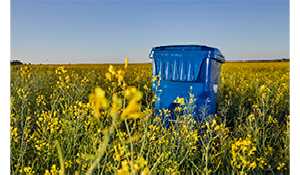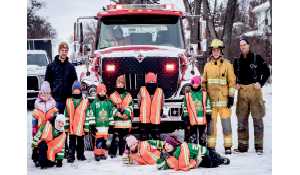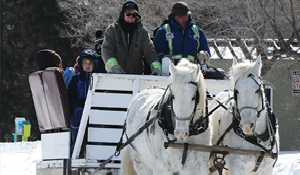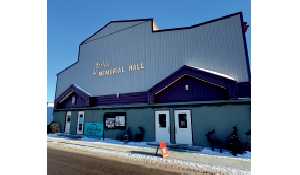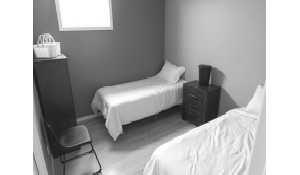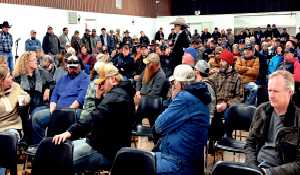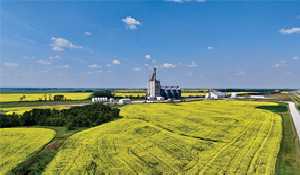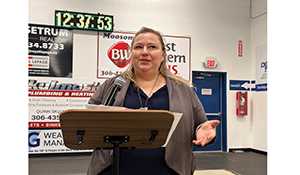Early carbon tax refund? Hmmmmm
January 14, 2019, 9:59 am

It came as a bit of a surprise last week when the federal government announced that, while the carbon tax being imposed on Saskatchewan and Manitoba, among other provinces, does not come into effect until April of this year, the government will start refunding the carbon tax to people when they file their 2018 income taxes this spring, before we have started paying it.
Some have argued that the carbon tax is nothing more than a cynical ploy to buy votes.
Providing cheques to people this year, before the carbon tax has started to be collected, would seem to reinforce that view.
Issues with carbon tax
For people in Saskatchewan the complaint about a carbon tax is that it punishes us for living where we do.
My eldest daughter is at law school in Vancouver. The only heat needed for her first condo in that mild climate was the fireplaceóit provided the only heat in the unit and was all that was needed.
She can get anywhere she wants on public transit. She doesnít need to burn much carbon except when she flies home.
Here when itís 30 below we need to heat our homes. When we need to go to a medical appointment in the city we need to take a vehicleóthere is no other option.
If you live in a small town and drive two hours to the city and two hours back three times a week for dialysis as some people do, the carbon tax will add up.
Three pronged attack
Politicians in this province have attacked it on three fronts:
Tax applied in some parts of the country, not in others
1) It is being imposed here by Ottawa and we will pay a tax that doesnít apply in some other provinces, Quebec for instance with its cap and trade system. While we will be paying an extra levy every time we fill our trucks or pay our SaskEnergy bill to heat our homes, there will be no such levy in Quebec. The cap and trade system applies only to massive emitters who need to buy carbon credits from those who have reduced their impactóit doesnít apply to the average person. On top of that, exemptions have been applied to some businesses and industries, making the cap and trade system meaningless.
It wonít be effective
2) It wonít be effective. First of all, since the government says people will get more back from the carbon tax than they pay, it wonít really change peopleís behavior because they canít afford to fill their tanks or heat their homes.
How does a tax give people back more than they pay? Businesses and individuals pay the tax and 90 per cent of whatís taken in goes back to individualsó$600 per family this year in Saskatchewan, a bit less in Manitoba, rising to $1,400 in 2022, so itís really just a transfer from businesses to individuals.
The actual cost of the tax will be 4 cents a litre on gasoline rising to 11 cents in 2022, and wonít make a difference in behaviorógas was $1.20 a litre a few months ago and is 95 cents a litre now, so the carbon tax is well within the normal variance of gas prices. Adding four cents to 11 cents per litre on a commodity that has price swings greater than that in the normal course of events isnít going to have any impact.
Iím going to make a bold prediction: precisely zero people in our readership area are going to trade in their F-150 or Silverado or Ram truck for a Prius because of the thought of paying an extra four cents a litre on gas. I could be wrong, I have been wrong before, so if you trade in your truck for a Prius, let me know and I will be duly humbled.
There will more impact on natural gas, unfortunately. Natural gas is clean and plentiful and cheap, and because itís so cheap, the cost of carbon will add more to the low cost.
Sask Energy estimates the tax will add 12 per cent to natural gas bills. Will that affect behavior? I have a 9,500 square foot office building Iím going to keep heating to 72 degrees when itís 30 below. Everything has been done right with the building we are in. We have an efficient boiler system, 12 inches of insulation that were added around the outside of the building on three sides as an energy retrofit, with a wall of windows facing southeast for maximum sun exposure. Itís a very energy-efficient building, but Iím about to be penalized with a 12 per cent hike on my natural gas bill for simply heating my building in winter. For lower income people with perhaps not the most energy efficient housing, a 12 per cent increase on keeping their home cozy in a cold Saskatchewan winter could be a big hit.
Itís a vote buying scheme
3) Politicians here have complained itís a vote buying scheme, which the federal government added credence to when they announced that we will get our first refund cheques this spring when we file our 2018 income taxes even though the tax has not been imposed yet and is being fought in the courts (the federal governmentís defence is that the carbon tax isnít a tax but a policy intended to change behavior). The fact that a family of four will get a cheque for $600 starting this spring before the election and before the tax has even been imposed makes a few people wonder about the motivation.

